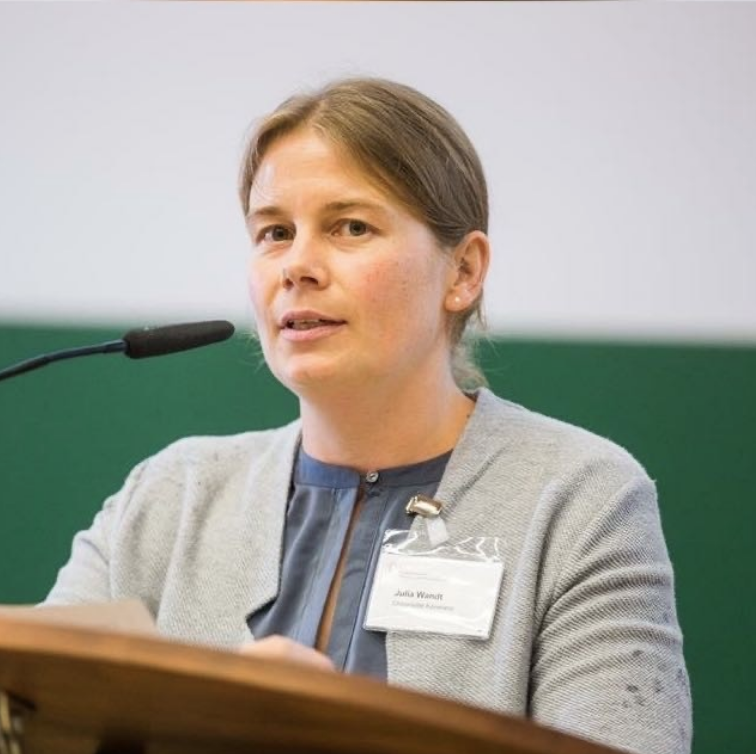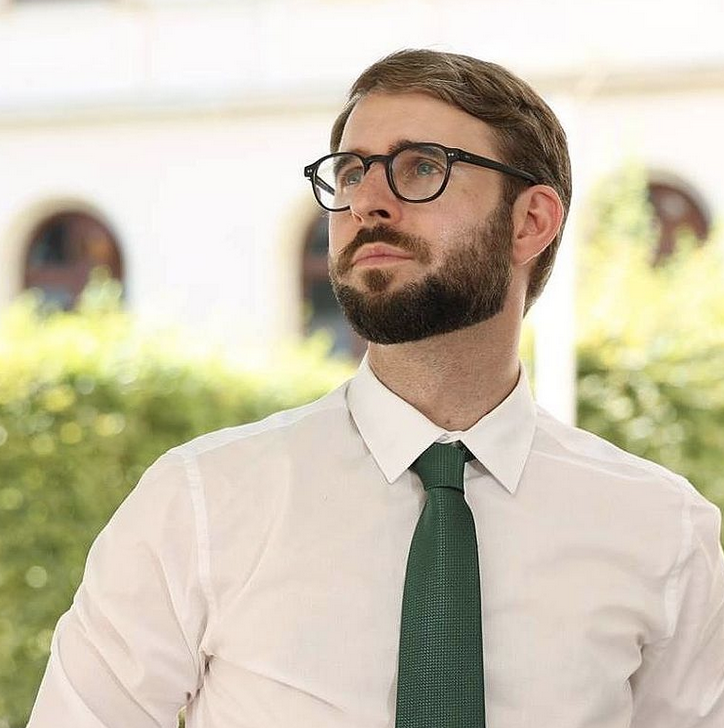Threats and attacks on researchers can lead them to self-isolate and retreat from public communication. We look at strategies to prevent this from happening.
The question of how researchers engage in public communication or political decision-making processes has gained unprecedented attention during the COVID-19 pandemic. Many scientists experienced hostile attitudes when going public. Threats and science hostility are no new phenomena, but gain more importance as science is increasingly embedded in public debates. Elephant in the Lab talked to Julia Wandt and Matthias Fejes, who both work in the field of science communication and are involved in the set-up of Scicomm-Support, a support structure to protect researchers in cases of hostility. Julia is responsible for the division Science Communication and Strategy at the University of Freiburg and Matthias in the Press and Crossmedia Editorial Office at the Chemnitz University of Technology.
What are your key tasks as science communicators for universities?

Julia Wandt: At the University of Freiburg, science communication and strategy has its own division in the rectorate. This change occurred recently in 2021 as the university wanted to emphasise the importance of science communication as well as its intertwinement with strategy. In this division, we are responsible for four departments: both internal and external communication. This includes communicating who the university is, where it would like to go, disseminating scientific findings as well as supporting internal communication. Further parts of our division include marketing and events and alumni networking, political communication and fundraising as well as the strategy department. At Freiburg, we strive to include a communication component during different processes. It is important to remember that communication should occur throughout strategic processes and as themes develop, not only at the end.

Matthias Fejes: At Chemnitz University of Technology, we restructured our communication unit about five years ago. Through this restructuring we established a cross-media editorial office for which I am responsible. In this role, I am involved in both conceptualising and operationalising how to strategically communicate our core competencies and research topics to different target audiences through various channels and formats. Our second focus is ensuring the quality of science communication. For example, we have integrated guidelines for good science PR into our work and also advise our researchers, either proactively by offering training in the area of science communication or by providing support on an individual basis such as how to best communicate a research paper or speak to the press. In addition, we are responsible for the classic communication tasks, such as student marketing and university events.
During the COVID-19 pandemic, scientists and science communication came under extreme scrutiny and even experienced hostility in the public sphere. What risks does hostility have for science?
Matthias: We must first realise that hostility in science communication is not a new phenomenon. What is new is the quality and quantity of this hostility and its public impact. You can observe this increase by looking at figures: for instance, in a study published by Nature in 2021, over 80% of the respondents from a sample of 321 international individuals said they personally or via social media or other media outlets experienced hostility. This presents a very concrete danger for our liberal democratic society where science is an essential pillar from which we make evidence-based decisions. Therefore, when scientists withdraw from public discourse due to fear of hostility, we lose valuable voices in our decision-making processes.
Looking back, what did the crisis teach us about how we can and should communicate about science?
Julia: The COVID-19 crisis was a situation which affected everyone, which thus gave science more visibility. Research topics with such wide-reaching socio-political implications can be exposed to more controversies, comments as well as reports of hostility. Then the goal must be that science is and remains resilient and scientists do not retreat in the face of such attacks. It is also very important, which was especially apparent during COVID-19, that scientists receive support from their institutions: communication support, legal support and – if needed – psychological support. Institutions must show scientists that they are not alone and that they should continue communicating even when controversies arise. We also learned through the crisis that we need to explain to the public how science works, that results develop and change over time. Science is continuously evolving and this is normal. By communicating to the public how the scientific process works, we can strengthen public trust in science and prevent scientists from retreating from public discourse.
Julia and Matthias, you are both board members of the Bundesverband Hochschulkommunikation (the German federal association for university communication), an organisation whose motto is “We get universities talking” (“Wir bringen Hochschulen ins Gespräch”). How has the role of such organisations changed since the pandemic?
Julia: The role of Bundesverband Hochschulkommunikation has certainly changed over the last years. These changes occurred in part independently from the COVID-19 pandemic. For example, membership to our organisation has expanded from ‘press spokespersons’ to include a wide range of individuals working in different facets of higher education communication – online communicators, social media communicators, marketing experts, and internal communicators and many more. This change reflects the increasingly important role communication plays for higher education institutions.
During the pandemic, we received many requests for assessments on the relationship between science communication and politics. For instance, there was the question: Can’t just scientists make political decisions? Wouldn’t that be much easier? We said no, this is not possible because politicians have the responsibility and of course it is ideal if they make decisions based on scientific recommendations, but scientists themselves cannot make these decisions, in my opinion. Such examples demonstrate that science communication has received more attention, however this increase is not necessarily linked to the pandemic and has been developing over the last ten years. In this sense, the conversation has shifted from focusing on the quantity of science communication to the quality of this communication. It is also understood that institutions need to participate in science communication and foster trust in science.
Matthias: I also see that the importance and visibility, and above all the relevance of such organisations has heightened due to their positions as decoders in politics and the media. Whether it be to provide insight on the pandemic or the war in Ukraine, there is expertise available to be called upon and included in the social discourse. I believe that this is the decisive point, and I hope there will also be a lasting effect of this change, which will permanently strengthen the relevance of scientific organisations as important partners in social decision-making processes.
Julia: Moreover, the crisis taught us that not everyone can be won over by scientific facts and emotions play a big role in people’s reactions to things like vaccinations. The question then is: How can we improve communication so that we can reach different target groups? What is the connection between science communication and emotions?
Matthias: I just wanted to add: Emotions beat facts – a simple saying, but true nevertheless. This is something we know from communication and it is vital that we take emotions seriously in science and higher education communication. Another example, we can reflect upon is the beginning of the Russia-Ukraine War. There was a phase when people had a lot of anxiety and fear and didn’t know what this meant for them concretely. Formats that can address these fears are discussion rounds with researchers on site, where people from the region can go and ask questions. Thus, these emotions can be channelled through a dialogue with researchers and form a feedback loop. Communication should not be a one-way street, rather ideally a direct exchange.
Lastly, you organise a Germany-wide support structure – the Scicomm-Support. Can you describe how Scicomm-Support works and how it supports researchers and science communicators in cases of hostility?
Matthias: Scicomm-Support is a joint project between the Bundesverband Hochschulkommunikation and Wissenschaft im Dialog, we also have partners like the German Rectors’ Conference (HRK) and the German Research Foundation (DFG) onboard. The core of this project was to create a platform where researchers working in Germany, Austria and Switzerland who experience hate speech in the frame of science communication can receive support and concrete help. This is part of a bigger research project on science hostility – CAPAZ – that started this year. The heart of Scicomm-Support is a hotline that researchers can use to contact experts. The hotline is available from 7:00 – 22:00, 365 days a year.
Julia: In addition, the other part of the project is about providing support to individuals working in science communication or higher education communication. Such individuals can also experience situations of hostility, as communicators for institutions. We offer advice on communication issues from our organisation, the Bundesverband Hochschulkommunikation, as well as work with lawyers to provide advice on legal aspects. Also, when needed our partners can provide psychological support.
Matthias: Our underlying goal is to make a concrete contribution to ensuring that researchers remain in the public dialogue and do not withdraw because they experience hostility in their science communication or are worried about the implications for communicating their research.
Interview by Melissa Laufer

